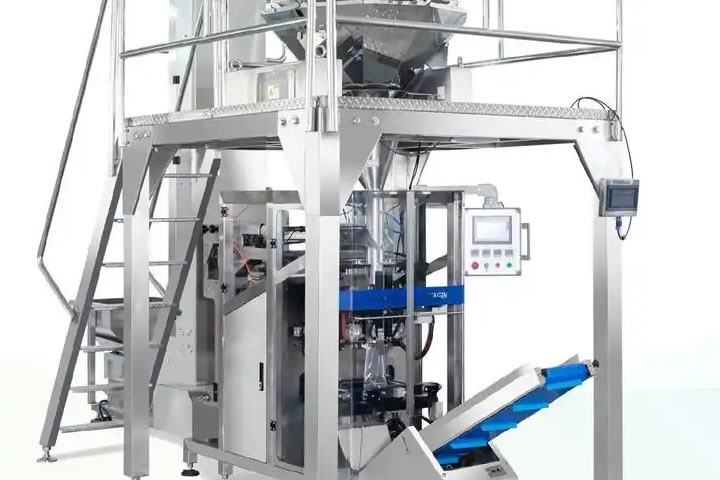At three o'clock in the morning, Chen Wei, the production supervisor of Lewei Food, swept the flashlight beam back and forth on the packaging line. He squatted down and ran his fingertips over the potato chip packaging bags that had just come off the line-the fine wrinkles at the seal were particularly dazzling under the light. "I have to stop and adjust again." He sighed and took out the intercom to notify the maintenance team. This is the seventh emergency shutdown caused by packaging defects this month, and there are only 48 hours left before the order delivery deadline for the e-commerce promotion.

As the leading snack brand in East China, Lewei Food has been facing constraints in the packaging link all year round: there are both classic 50g small bags, as well as online celebrity joint models, festive gift boxes and up to 20 specifications. Traditional pillow packaging machines require mold disassembly and parameter readjustment for changing models, and each switch takes more than 90 minutes. What's more difficult is that the crisp and fragile characteristics of puffed food place stringent requirements on packaging accuracy. A sealing and cutting deviation of more than 1 mm will cause leakage or bag breakage.
After inspecting many suppliers, Lewei Food chose to cooperate with ply-pack to introduce an intelligent pillow packaging machine equipped with servo drive technology. This equipment brings three major changes:
. Millisecond response: The five-axis linkage servo system controls the tension of the packaging film in real time, and even at a high-speed operation of 120 packages per minute, the sealing and cutting position error is still controlled within ±0.3mm;
. 15-minute changeover: The modular mold and preset parameter system shorten the packaging specification switching time from 90 minutes to 15 minutes;
. Energy consumption visualization: The built-in smart meter of the equipment displays the energy consumption curve in real time. Combined with the valley peak electricity price strategy, the average monthly electricity bill of a single machine is reduced by 18%.
At the beginning of the project, the Lewei team had doubts about the stability of the technology. ply-pack engineers were on-site for three days, using actual data to dispel concerns:
·Precision test: 10,000 bags of potato chips were packaged continuously, and the bag breakage rate dropped from 2.3% to 0.05%;
·Stress test: Simulating the e-commerce promotion scene, 5 specifications were switched within 8 hours, and the production capacity increased by 40%;
·Energy saving verification: Compared with the electricity bills of the same period, a single device saves more than 2,000 yuan in electricity bills per month.
“What surprised me most was the operation interface.” Chen Wei pointed to the three-dimensional simulation diagram on the control screen and said, “It’s like dragging the module like playing a game. The system automatically generates operating parameters, and even new employees can quickly get started.”
Half a year after the equipment was put into use, Lewei Foods handed in a brilliant report card:
·The on-time delivery rate of e-commerce promotion orders increased from 78% to 99.6%;
·The loss rate of packaging materials decreased by 42%, and the annual cost savings exceeded 500,000 yuan;
·Successfully opened up the high-end gift market, and the customer unit price increased by 30%.
The success of this pillow packaging machine is triggering a chain reaction in the snack industry. Three competing companies have contacted Ply-Pack to discuss cooperation, and a Southeast Asian importer has even listed it as a hard standard for supplier access. "Now our equipment room has become a 'tourist attraction' for industry visitors." Chen Wei smiled as he wiped the company logo on the machine, and the stainless steel shell reflected his long-lost relaxed smile.

